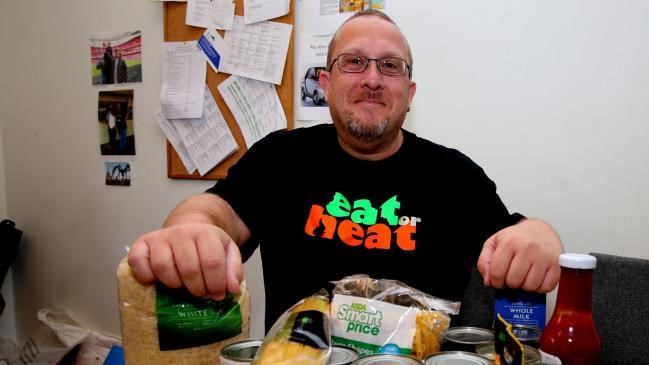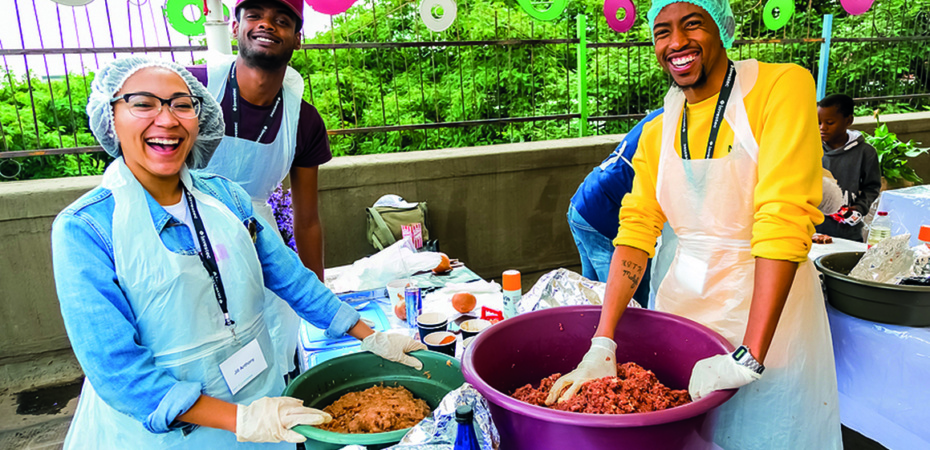We don’t just have to sit back and let bad things happen to us, it can feel really great to be a part of the solution too… Here are some ideas to inspire us into action!
We’re better off living in a community than as individuals,” says Will Mansell, who is on a crusade to change the way we eat (see our profile of the Long Table below). He isn’t the only one. While the government is doing its bit to tackle the food crisis, local people are forming ‘collectives’ to help feed their community.
Lockdown has shown that our food system doesn’t work as well as we need it to. Recent figures suggest we are relying on food banks more than ever.
According to the Trussell Trust, almost 100,000 households used a food bank for the first time during lockdown. To help ease the pressure off food banks, other models are opening up. What they all have in common is creating better access to quality food, and helping to build a community.
Here’s how they work…
Community kitchens
Based in Stroud, Gloucestershire, The Long Table is a community kitchen which serves food that would otherwise have been binned. Wonky veg or surplus meat won’t go to waste here. Pre-lockdown, lunch and dinner is served for around 40 people (including staff) throughout the week. It also hosts a cookery school and discussion groups.
The business had to adapt in lockdown. It started delivering frozen ready meals to people’s homes. People phone or email to order their meal and somebody delivers it to their front door. Even in lockdown people felt part of a community. Before they knew it they had a county-wide network delivering a whopping 40,000 meals.
The model operates on a “pay as you feel” basis. Everybody receives a meal and becomes a customer. This creates the idea of a ‘collective’ which Will believes is important to our mental wellbeing, “Eating as a collective reduces the feeling of isolation,” he says. “We’re much better off living in a community than as individuals.” Read more.
Pantries and Food Clubs
Meanwhile, food clubs and pantries are popping up all over the UK.
Food Clubs are normally found in children’s centres. We will typically pay an annual £1 membership fee and weekly payments of £3.50 which gets us approximately £15-£20 worth of food. Members will have access to a support network and cookery lessons.
Pantries are located in churches and community centres. They work on a local membership model too. We pay a couple of quid per visit and are entitled to a basket of groceries worth up to five times more. Pantries work in partnership with the charity FareShare and local wholesalers, who provide surplus food and other items.
Click here to read about the food pantry operating in London’s wealthiest borough, South Kensington.
Citizens Supermarkets
Citizens’ Supermarkets are large facilities which have a community cafe and advice hub. Some have cookery and IT classes on-site, as well as second hand furniture shops. Usually we are referred by our housing provider, agency or we can self refer. Some supermarkets have a pay-per-item system at the checkout while others ask for a flat fee in return for a range of items. Food is heavily discounted, using surplus stocks from retailers and manufacturers.
You can find citizens supermarkets in Birkenhead, Coventry and Bradford. There are plans for new openings in Glasgow, Norwich, and Sheffield too. In some parts of the UK there are ‘mobile’ citizens’ supermarkets – that’s a double decker bus kitted out with a shopping area, advice booth and cafe.
Food Banks
A food bank is a storehouse for millions of pounds of food and other products that are donated by the public. Volunteers sort the food into parcels. In times of emergency, health visitors, schools or social workers can give us a voucher which entitles us to a food bank parcel worth three days of food. The Trussell Trust is the largest food bank network in the UK with over 1,200 food bank centres.

Click here to read our profile of Eat or Heat food bank in Walthamstow, East London.
Social Supermarkets
Here, we can pay for food at a heavily reduced rate – it can be as low as 30p for every £1 you would spend in a normal supermarket. They know their customer base and who needs that bit of extra help. Social supermarkets aim to be completely sustainable and use local suppliers.



